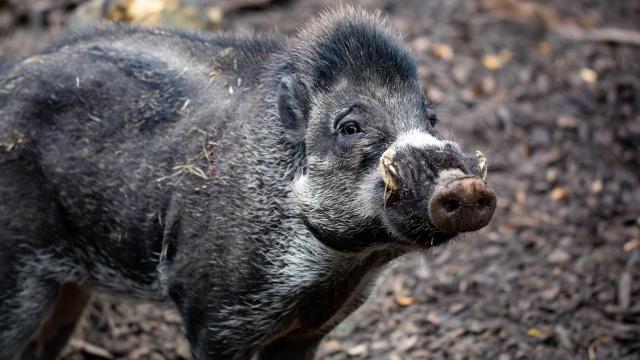One animal’s poo might be another person’s treasure. Scientists in the UK say they’ve discovered viruses that could be turned into a weapon against bacterial superbugs in a perhaps unexpected place: the feces of several endangered species at a nearby zoo. The team believes these viruses could be especially effective against bacteria that commonly cause foot ulcers in people with diabetes.
Antimicrobial resistance is one of the most pressing public health issues of our time. Today, over a million deaths worldwide a year are thought to be directly caused by these drug-resistant germs (mostly bacteria, but also some viruses and fungi); by 2050, that number could reach 10 million deaths annually.
Many groups of scientists are working hard to find and develop novel treatments that can beat back these superbugs, including researchers at the University of Sheffield. As part of this goal, the researchers teamed up with the Yorkshire Wildlife Park in England. They sifted through fecal samples from a variety of endangered animals living at the park. And in some of these samples, they isolated potentially important bacteriophages—viruses that naturally prey on bacteria.
Phages have been used occasionally to treat bacterial infections in a medical setting, but it’s only recently that interest in them has really started to pick up. Phage therapy, which involves finding and growing the right phages for specific bacteria, has been shown to treat infections highly resistant to conventional antibiotics. And since viruses tend to be picky about their hosts, phages are considered harmless to humans.
The Sheffield researchers believe they’ve found phages that can target bacteria known to cause or worsen lingering foot wounds, or ulcers, in people with diabetes. These ulcers are a common complication in diabetes, affecting about 15% to 25% of patients. They’re difficult to clear up with antibiotics and can sometimes lead to hospitalization or even outright amputation of the affected limb.
“Despite the smell, it turns out that the fecal matter of endangered species could hold the key to killing infectious bacteria that are otherwise resistant to antibiotics,” said researcher and molecular microbiologist Graham Stafford in a statement from the university. “So far we have managed to find antibacterial viruses from Guinea baboon, giraffe, lemur, Visayan pigs, and our favourite, the cuddly binturongs, and are working hard to develop these into viable treatments for patients whose next option is the loss of a toe, foot or leg.”
More testing will have to be done to know whether these poo phages really can be used as superbug killers. But if the team’s work pays off, they envision using these viruses in dressings typically applied to people’s wounds. Their research also shows why it’s important to protect and maintain diverse populations of wildlife, according to Stafford.
“It’s a delight that endangered species are contributing to such a positive and powerful purpose,” he said. “It provides an ever stronger reason to conserve endangered animals. The biodiversity they harbour potentially includes new cures for a range of infectious diseases and we believe this is the tip of the iceberg in this area.”
